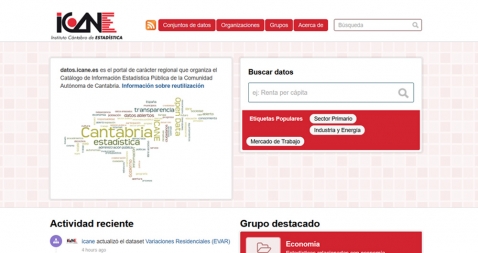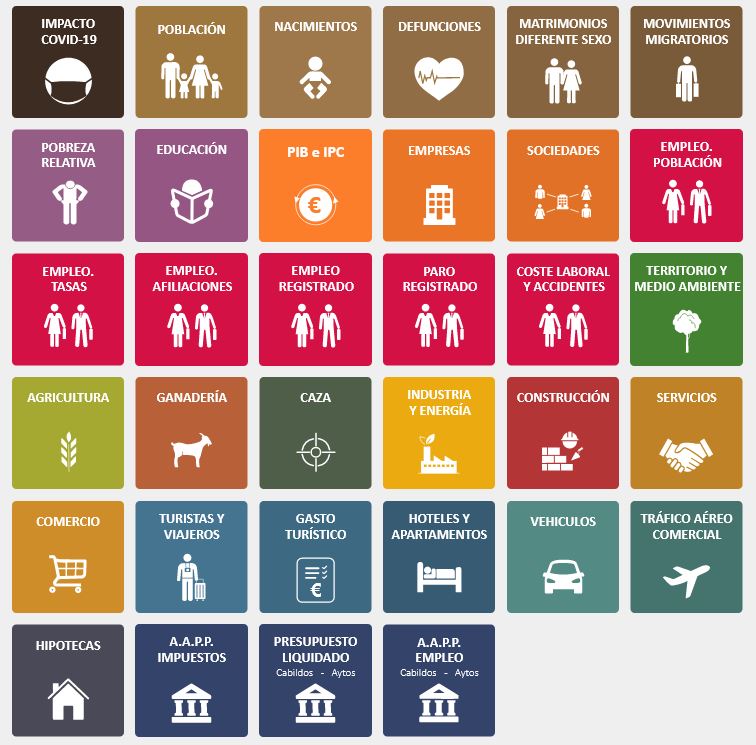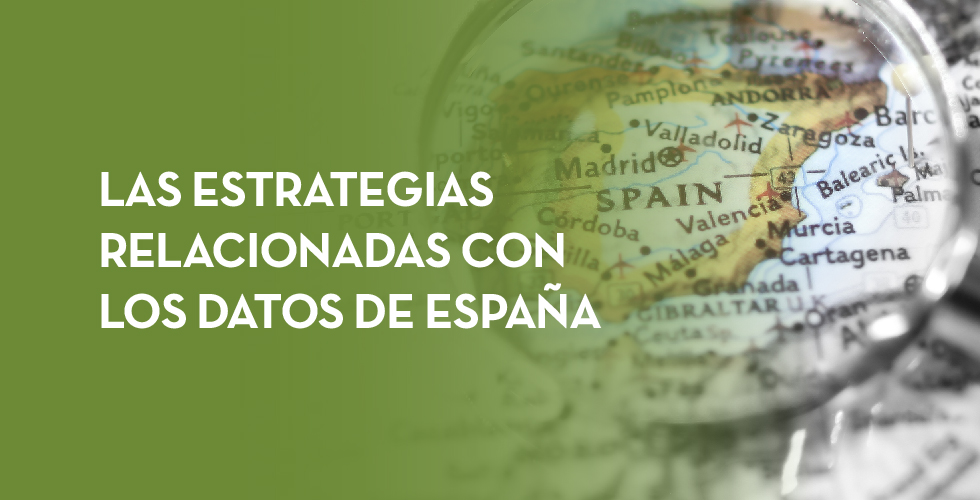The Cantabrian Statistics Institute adds new datasets to datos.gob.es
Fecha de la noticia: 17-06-2021

The Cantabrian Institute of Statistics (ICANE in its Spanish acronym) has been one of the latest additions to the National Catalogue of Open Data. From now on, users of datos.gob.es can access statistical information on the Autonomous Community in reusable formats from our portal.
ICANE, a commitment to open and linked statistical data
The ICANE is the public body in Cantabria responsible for the production and dissemination of statistics related to society and the economy in the region. On its website, we can find population figures, economic accounts or data related to education and health. These data are shown in tables and graphs, which are easy to understand but not always easy to reuse.
For this reason, the ICANE has also launched an open data space, where statistical information is offered in formats and structures that favour its reuse. This is a linked data portal, which offers data through dereferenceable URIs on the Web. The concepts are linked to other repositories such as Eurostat, DBpedia or Geonames. This provides users with more related and contextual information, which facilitates the creation of new knowledge.
Users can access the published data either manually, using a search engine or filtering by tags, or automatically from the list of datasets produced in CKAN, through its API, or through an RDF browser. ICANE also has a SPARQL Endpoint.
Indicators and statistics available to all re-users
The ICANE catalogue currently has more than 350 datasets, divided into different categories. The data linked to the economy (216) and with a regional component (211) stand out. Some examples of datasets offered in open access are the Annual Wage Structure Survey, the Living Conditions Survey (LCS) or the Environmental Indicators.
Both data and metadata are provided in six different formats (HTML, JSON, RDF, XLS, PC-AXIS and SDMX), oriented both to automated machine processing and direct human readability.
The conditions for re-use are set out in the Legal Notice of the Cantabrian Statistics Institute. Some of the conditions for its use are citing the source of the documents or not altering or suppressing the metadata related to the date of update and the conditions of reuse, among others.
ICANE's presence in datos.gob.es and other catalogues to increase its visibility
In June this year, ICANE began its harvest with datos.gob.es, so that its datasets are now accessible from the National Catalogue of Open Data. With this move, not only does it improve the visibility of its datasets nationally, but also internationally, as datos.gob.es automatically federates with the data.europe.eu. In this way, the initiatives that register in our portal see how their datasets are also accessible from the European portal, without the need to carry out any additional management.
To guarantee the quality of its data, ICANE carries out a two-stage publication process: the information is stored in a test databank to be checked against official sources before being published in production. The import of the datasets from ICANE's Web Data Bank and Metadata API into the Open Data Portal is a fully automated process and monitored on a daily basis.
In addition to datos.gob.es, ICANE has also registered its databank as a dataset in The Data Hub, the open catalogue promoted by Datopian and The Open Knowledge International.
Why is the publication of local statistical data important?
The value of open statistical data has been highlighted by a multitude of bodies. From the European Union, which highlights them as high-value datasets in its Directive on open data and re-use of public sector information, to the UN, which drives their openness through a specific working group, promoted by its Statistical Commission. Statistical data allow us to better understand our environment and to make informed decisions.
In our country, the main body that provides statistical information is the National Statistics Institute (INE, in its Spanish acronym), which has more than 8,000 datasets in our catalogue. Like the ICANE, the INE also has an open data space on its website where it shares the Inventory of Statistical Operations, statistical information compiled by itself and published in INEbase, anonymised microdata from surveys and the Electoral Census Street Map.
But just as important as national statistical information is local statistical information. As the UN stated in one of its reports, this type of data can provide more segmented information on specific geographical areas, which is of great value when it comes to understanding differences between regions and being able to formulate fairer local and national policies.
In this sense, regional statistical bodies such as ICANE or the Canary Islands Institute of Statistics (Istac), which also federates a large amount of useful data with datos.gob.es, are essential. We hope that in the future more local bodies will be encouraged to follow in the footsteps of these institutions and provide data of interest to society as a whole.














